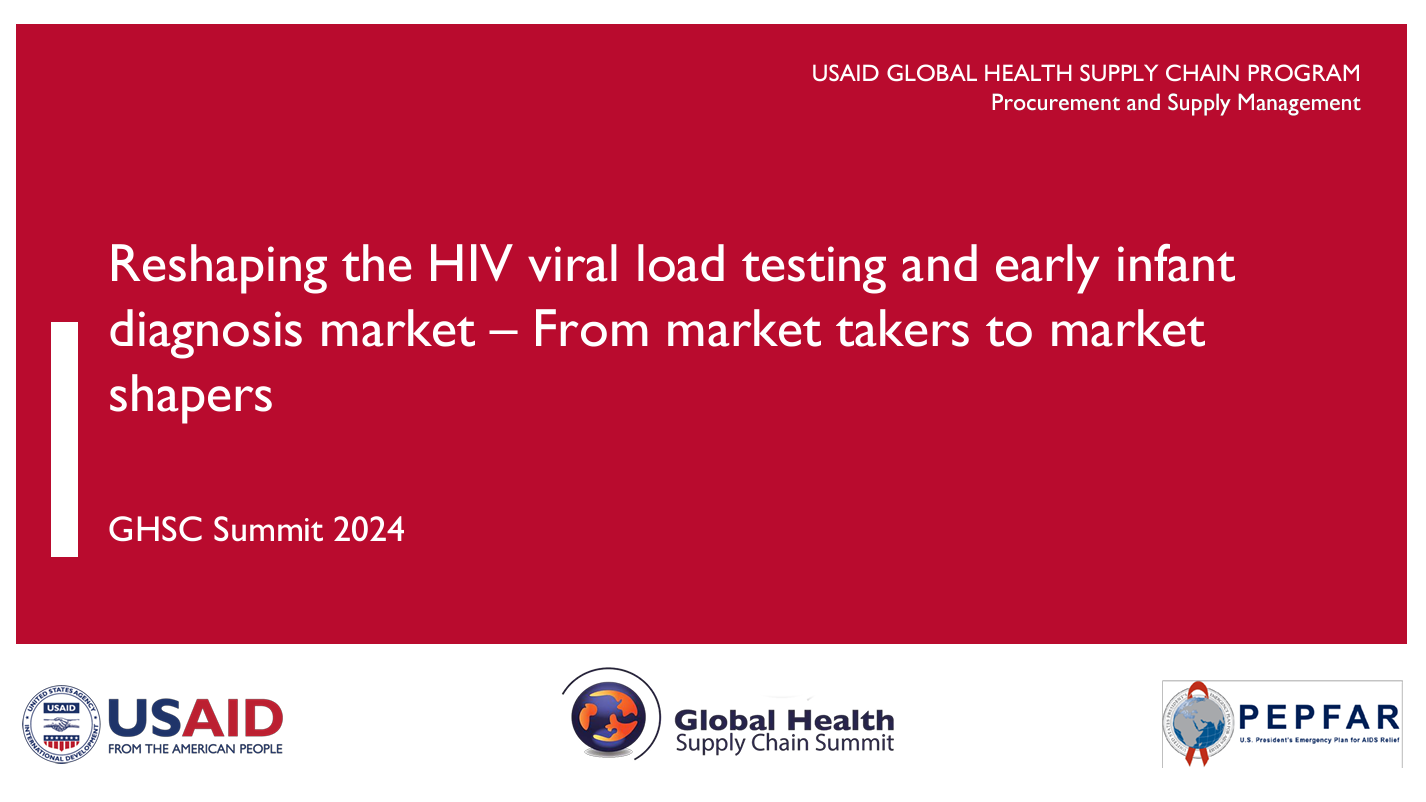
USAID, through GHSC-PSM—the primary global mechanism for procurement and supply chain management of PEPFAR’s HIV VL and EID testing commodities—plays a leading role in helping countries to expand and transform in-country laboratory service provision to be more cost effective, efficient, and responsive to patient needs.
In 2019, GHSC-PSM released a global request for proposals (RFP) which pooled the procurement of molecular viral load and early infant diagnostic testing reagents and lab consumables across all PEPFAR countries, requiring manufacturers to bid a standard Incoterm Free Carrier (FCA) price based on total global volumes rather than a country-by-country price. This strategic sourcing initiative and improved supplier relationship management have optimized lab services for the scale up of HIV viral load (VL) and early infant diagnosis (EID) diagnosis. It leveraged PEPFAR’s aggregate VL and EID test demand to move the manufacturers to provide competitive and all-inclusive standardized pricing for reagents and consumables on their respective platforms. This market shaping activity included negotiating service-level agreements (SLAs), data connectivity solutions, and indicator-based performance management.
Central to program implementation success is the creation of a performance monitoring and management system. The SLAs established standardized service agreements and key performance indicator (KPI) tracking that made suppliers contractually accountable for their performance. Ten KPIs that track instrument performance and maintenance are monitored to ensure supplier compliance. These performance indicators are reported monthly and quarterly, allowing suppliers, ministries of health, GHSC-PSM, and USAID to monitor instrument performance and maintenance and letting suppliers take responsibility for commodity supply chain management, e.g., shelf life remaining and on-time performance.
GHSC-PSM has improved service delivery, successfully driven the cost of testing down, and realized cost savings for governments, PEPFAR and other donors, and the US taxpayer. These initiatives are sustainable solutions that are a win-win-win for governments, for testing facilities, and, most importantly, for patients.